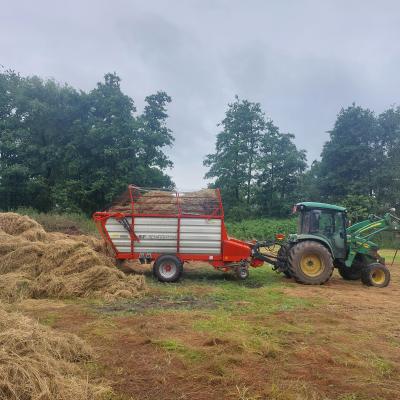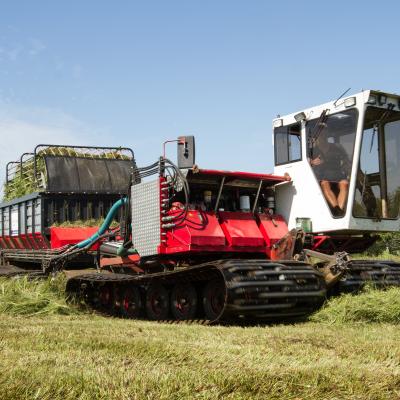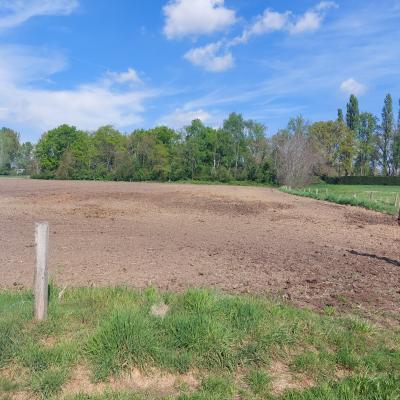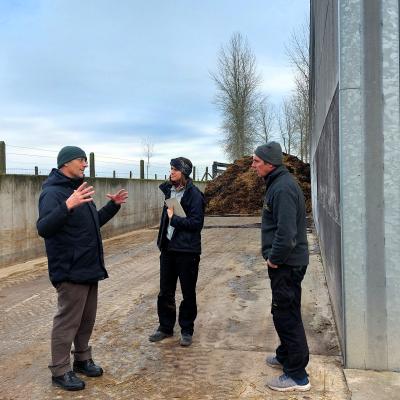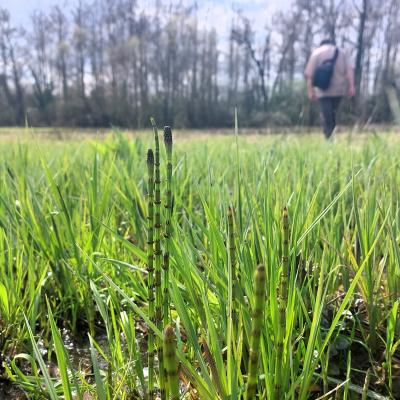The nature management showcases (five in the Flanders area) demonstrate how biomass from nature management and urban green spaces can be re-integrated into local economies. By composting these streams together, local farmers can improve soil quality and we reduce CO² emissions. Transport of the biomass to the compost facilities and compost to the farmers is not needed by this way of working.
Natuurpunt is currently building the necessary networks and crucial practical data are generated through the collaboration with ILVO. The pilots also simultaneously expose the systemic barriers, primarily the regulatory void and the practical hurdles, that must be overcome to fully realize the potential of these local cooperation’s and closing the biomass loop in these areas.
Network building
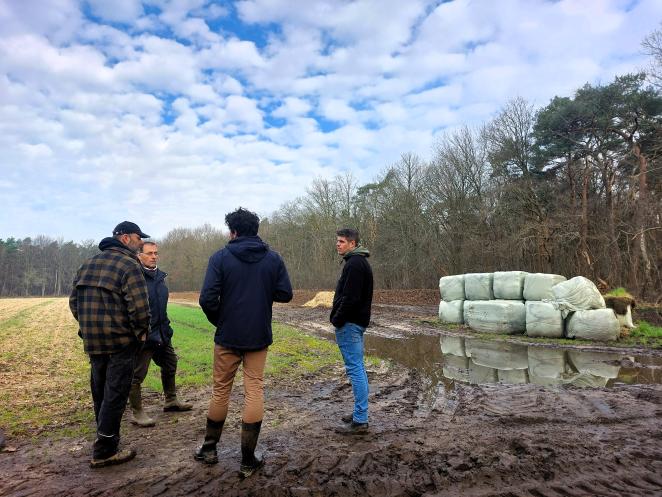
A crucial first step in organizing these showcases involved identifying suitable locations and engaging the necessary stakeholders. Often, volunteers or professional workers from Natuurpunt signalled specific areas facing biomass management challenges. Starting from there, Natuurpunt was looking for potential local farmers, which was often the case when they have usage agreements for mowing or grazing on the fields and plots of Natuurpunt. Once key stakeholders were identified, on-site meetings were organized to discuss logistics, required space, and responsibilities for grass transport, composting, and the eventual distribution of the finished compost. Most farmers that were asked were interested in the product. With the biomass coming from the nature reserve they feel more certain that there is no plastic contaminations as is often the case in commercial compost. But they also questioned the quality of the product and the process. It is therefore very valuable that the pilots are monitored by ILVO.
Challenges in the use of material from nature reserves
In 2024, 5 sites were in the picture as pilot site. Now, June 2025, on two locations they managed to make compost. Each had their own challenges, but overall we would like to highlight 3 following challenges:
- Absence of a Clear Regulatory Framework: This remains a significant hurdle across all sites. On farm composting has been studied for more than 20 years and it’s useful and positive characteristics have been proven over and over again. Facilitating and encouraging the practice of on farm composting has been recommended by European, Belgian and Flemish policy. The regulatory framework has been announced for several years now, but until now it is still not in place. This regulatory vacuum generates uncertainty and fear among farmers, hindering widespread adoption and making it challenging to maintain or scale up the pilot initiatives. We remain positive though, as a result of ongoing lobby-work together with ILVO, other nature conservation organisations and farming organisations, the framework is expected to be in place in 2026.
- Logistical Complexities and Costs: Transporting large volumes of biomass, especially over distances, presents considerable logistical challenges and high costs. As observed in Schupleer/Lovenhoek, the distance between nature reserves and composting farms can be a long-term issue. For Viersels Gebroekt (Antwerpen), the urgent need for new storage solutions for hundreds of hay bales and thousands of cubic meters of grass clippings, underscores immense logistical and financial pressures. Furthermore, the efficiency of biomass removal, including the high costs coming with tractor hours remains of significant concern. Effective removal from nature reserves is further complicated by challenging terrain and the need for large, accessible, and dry plots for composting, which are not always available.
- Practical Implementation and Operational Issues: Real-world implementation is often showing unforeseen difficulties. The weather's impact directly delayed mowing and biomass delivery in Schupleer/Lovenhoek, disrupting project timelines. In Gulke Putten, operational challenges arose when the compost was not removed on time by the farmer, leading to dissatisfaction among volunteers and highlighting the need for clearer agreements and consistent follow-through. The presence of weed seeds in composted material is also of practical concern for certain end-users, requiring a more thorough follow up during the process.
In conclusion, important insights are gained. And lessons are learned and we will build on that to further improve the pilot sites. More importantly, all stakeholders are still interested in and excited about the product and the cooperation, and willing to talk and find ways to overcome the obstacles. For Flanders this is a very nice opportunity to bring together nature management organisations and farmers, working together to close the cycle.
